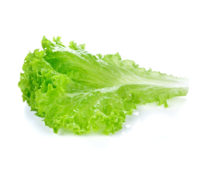
Contact our PIO directly to share health news.

770.339.4260
E.coli Outbreak Linked to Romaine Lettuce

CDC has narrowed its warning to consumers regarding E. coli 0157: H7 associated with romaine lettuce. U.S. Consumers should not eat and retailers and restaurants should not serve or sell any romaine lettuce harvested from the central coastal growing regions of northern and central California. The specific California counties identified by the FDA are: Monterey, San Benito, San Luis Obispo, Santa Barbara, Santa Cruz, and Ventura. Romaine lettuce from these areas or from an unknown source should be discarded right away.
If you do not know where the romaine lettuce is from, do not eat it.
You can check bags or boxes of romaine lettuce for a label indicating where the lettuce was harvested. Romaine lettuce is not linked to this outbreak if labeled with a harvest region outside those listed above, like the desert growing region near Yuma, the California desert growing region near Imperial County and Riverside County, the state of Florida, and Mexico.
If you do not know where your romaine lettuce was harvested, do not eat it and throw it away. You should discard it right away regardless of whether some has been eaten and no one has gotten sick. This includes all types of romaine lettuce, such as whole heads of romaine, hearts of romaine, and bags and boxes of precut lettuce and salad mixes that contain romaine, including baby romaine, spring mix, and Caesar salad. Once thrown out, wash and sanitize refrigerator surfaces or drawers where romaine was stored.
Restaurants and retailers should check the label on bags or boxes of romaine lettuce, or ask their suppliers about the source of the lettuce. Restaurants and retailers should not sell or serve any romaine lettuce harvested from the areas mentioned above. If the harvest region is unknown, do not sell or serve it.
People infected with E. coli 0157: H7 usually get sick between 3 – 4 days after eating or drinking something contaminated with the bacteria. Symptoms can include diarrhea (sometimes bloody), stomach pain, and vomiting. In rare cases, E. coli 0157: H7 may lead to kidney failure. Contact your physician’s office if you develop diarrhea that lasts for more than 3 days or if the diarrhea is accompanied by blood in your stool, a high fever, or severe vomiting that prevents you from staying hydrated. If you are diagnosed with E. coli 0157:H7 through a laboratory test, your doctor is required to report this information to the health department.
Helpful Links
Contact our PIO directly to share health news.


